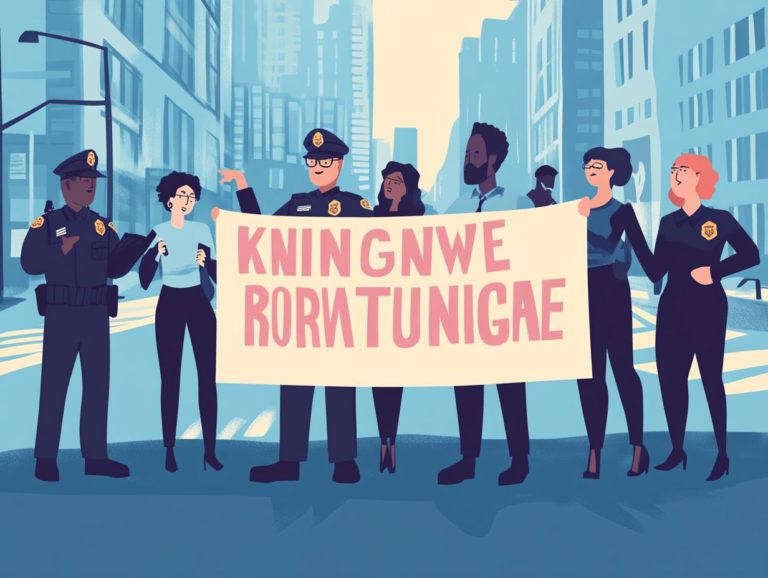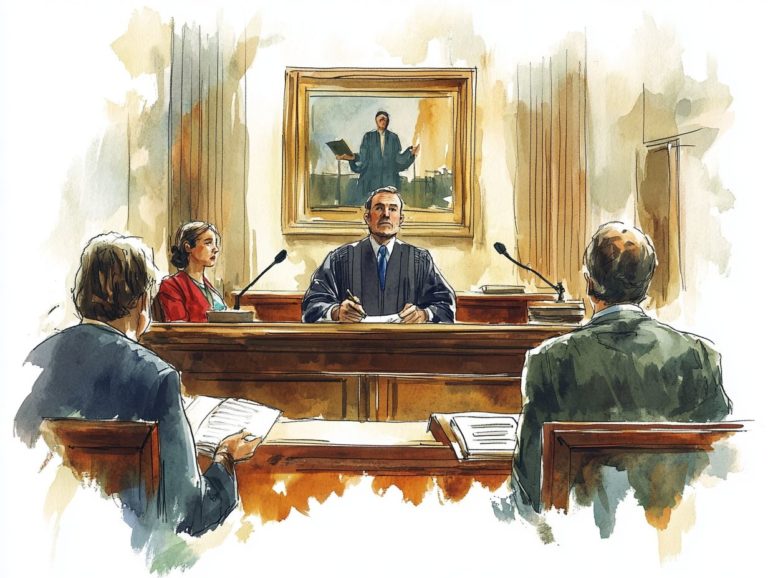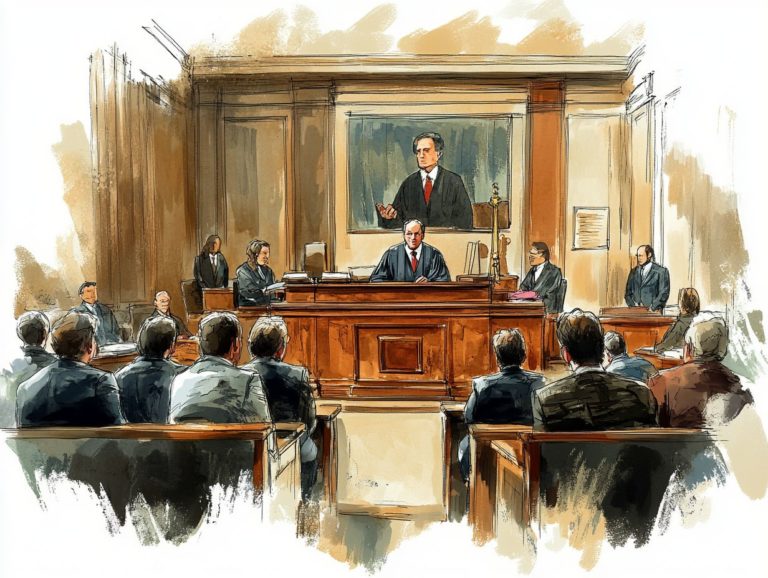What to Do if You Feel Your Rights Are Being Violated
Every individual deserves a comprehensive understanding of their rights and the means to protect them. Unfortunately, violations can manifest in various ways, often leaving many feeling exposed and uncertain about the next steps to take.
This article delves into what constitutes a violation of legal rights and outlines the essential actions you should consider when confronted with such a situation. From carefully writing down incidents to seeking legal assistance, this guidance encompasses all the crucial elements.
Knowing your rights is crucial! It empowers you to stand up for yourself and safeguard your dignity and freedom.
Contents
Key Takeaways:
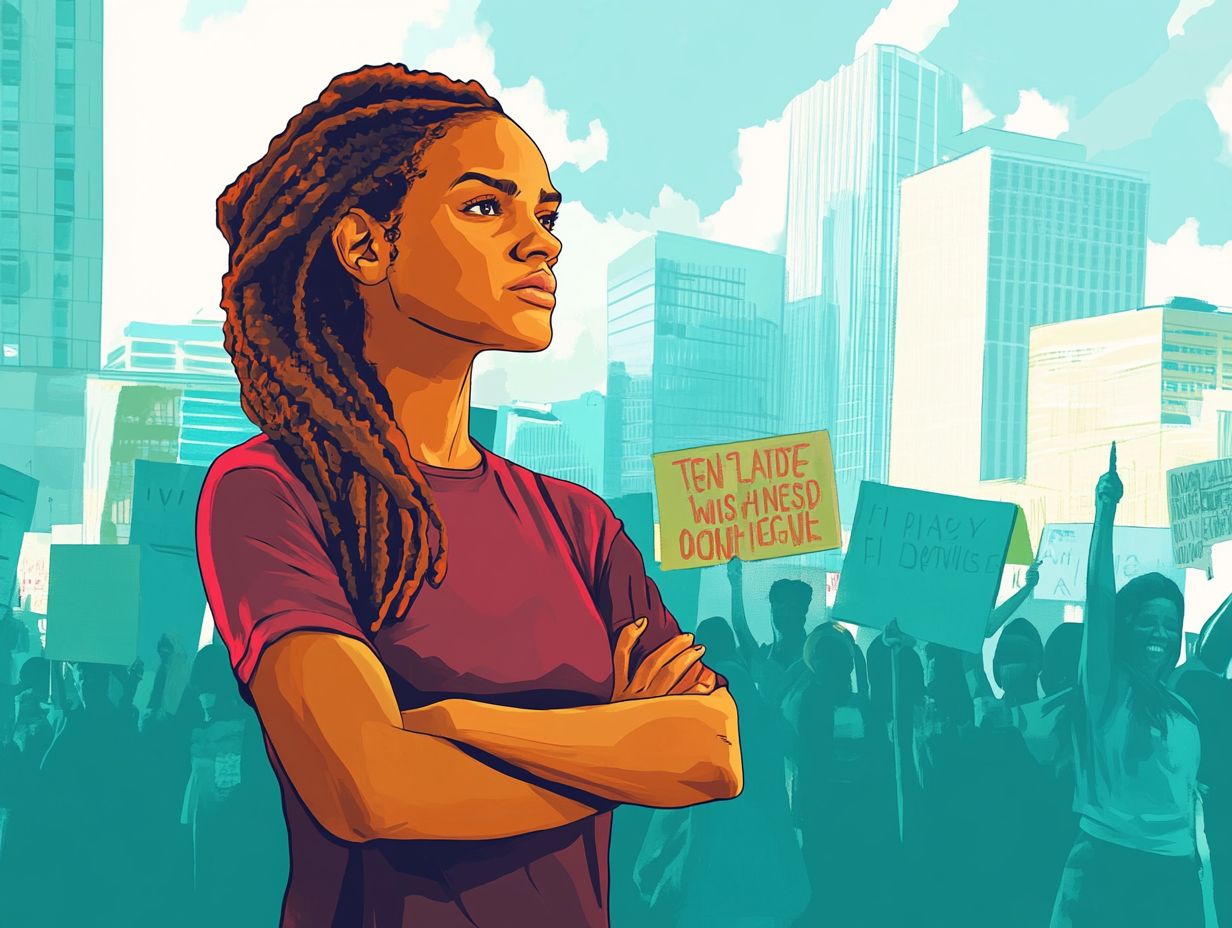
Know your legal rights and what constitutes a violation to be prepared for any potential situation. Take immediate action by documenting the incident, seeking legal assistance, and reporting to the proper authorities. Deal with the emotional impact by managing stress and anxiety, and seeking support from loved ones.
Understanding Your Rights
Knowing your rights is crucial! It empowers you to stand up for yourself. These basic rights and freedoms belong to every person and cover various aspects of life, including employment, education, and public accommodations.
These rights are safeguarded by both federal and state laws, such as the U.S. Constitution and a range of civil rights statutes that tackle discrimination based on factors like immigration status or police conduct.
By familiarizing yourself with your rights, you equip yourself to take decisive action against violations. This proactive stance helps you get fair treatment when facing discrimination and hold law enforcement and institutions accountable.
What Constitutes a Violation?
A violation of your rights can take many forms, such as employment discrimination or infringements on your civil liberties by state and federal authorities.
In the workplace, this could appear as unfair treatment based on your race, gender, or disability. In housing, you might encounter discrimination if landlords refuse to rent to you due to your ethnicity or familial status.
In educational environments, violations can manifest through unfair disciplinary actions or barriers to accessing programs based on your identity. You also have the right to file complaints through established channels. These complaint forms are crucial as they initiate the investigation process.
To combat these issues, the Equal Employment Opportunity Commission (EEOC) and the Department of Housing and Urban Development (HUD) are on the front lines, investigating complaints of discrimination and providing a platform for you to seek justice.
When situations escalate, an Administrative Law Judge steps in to adjudicate disputes, ensuring fairness and adherence to legal standards throughout the process.
Steps to Take if Your Rights are Being Violated
If you find that your rights are being violated, it s essential to take swift and organized action to safeguard yourself. Act quickly to protect your rights!
Begin by carefully writing down the incident and don t hesitate to seek legal assistance to ensure your interests are properly represented.
Don t wait! Start understanding your rights today and take control of your future!
Documenting the Incident
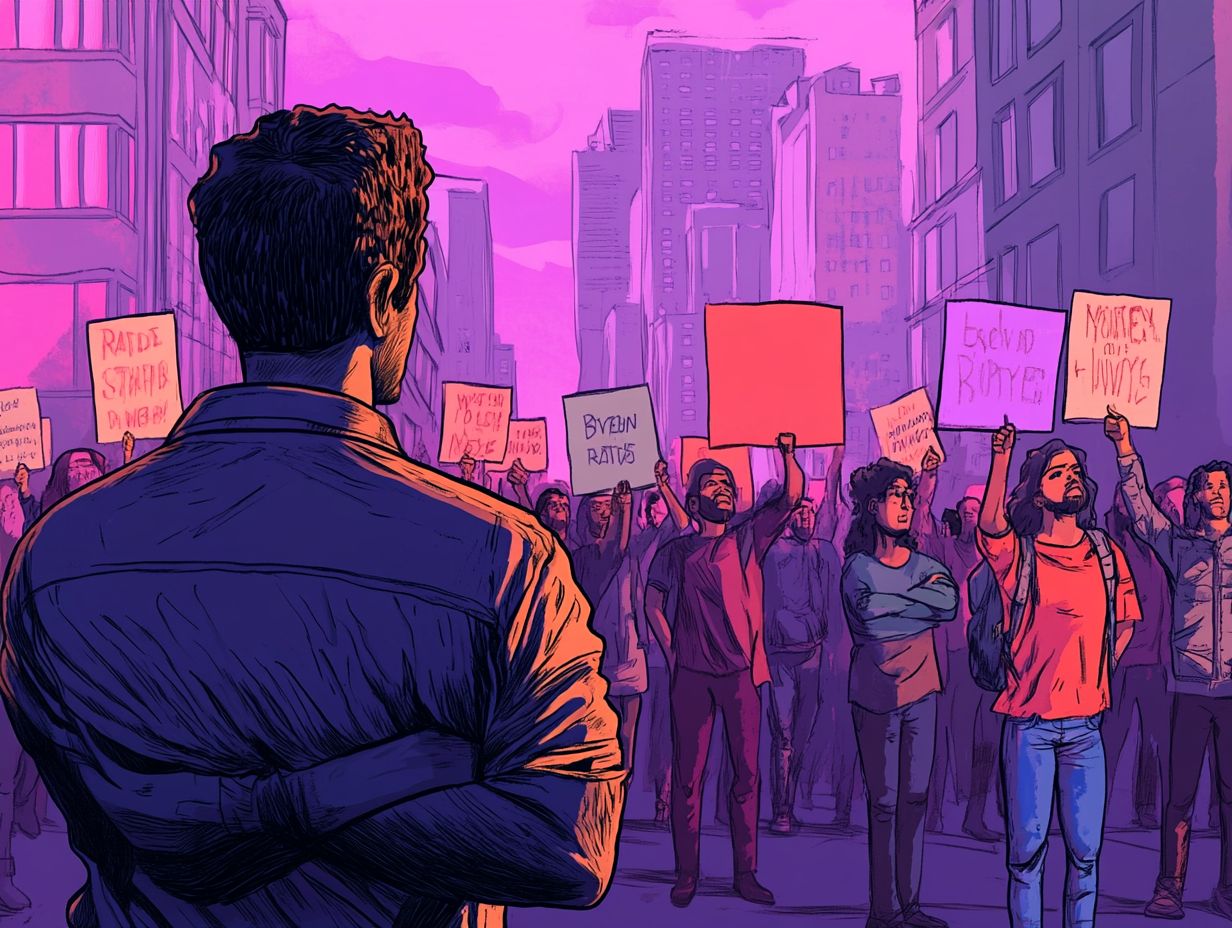
Documenting the incident is essential for addressing rights violations. Accurate records support your complaints and can significantly influence legal actions.
Carefully write down each event. Note the dates, times, locations, and any witnesses to enhance your credibility and provide clarity.
Maintain a comprehensive timeline to track behavior patterns. Thorough documentation helps build a strong case for legal claims.
Seeking legal counsel during this process ensures every step is informed and strategic, empowering you to navigate your rights confidently.
Seeking Legal Assistance
When facing violations of your rights, seek legal assistance. A skilled civil rights attorney can expertly navigate discrimination complaints.
This professional clarifies legal processes and supports you in filing complaints accurately and on time. They can guide you through hearings and advocate for your rights.
Consider these key factors when searching for legal counsel:
- Experience
- Client reviews
- Successful case outcomes
Many organizations and online resources offer legal advice and referrals to help you in civil rights matters.
Reporting to the Proper Authorities
Reporting a rights violation to the right authorities is crucial for accountability and justice. This action empowers you to confront injustice and helps enforce protective laws.
Gather all documentation, including details about the incident, correspondence, and witness testimonies. This will strengthen your report.
When contacting agencies like the EEOC or HUD, provide complete information for a strong report that could lead to investigations. After submitting your report, be ready for mediation or investigations.
Stay vigilant about follow-ups to ensure your concerns are addressed effectively.
Dealing with the Emotional Impact
Navigating the emotional toll of rights violations can be daunting. Prioritize your mental health.
Seek support from loved ones and professionals; it’s crucial for your well-being.
Managing Stress and Anxiety
Managing stress and anxiety is vital when facing rights violations. These feelings can significantly impact your mental health and quality of life.
Explore effective techniques like deep breathing, mindfulness, and journaling. These practices can help you express your feelings and gain perspective.
Make time for activities that bring joy and relaxation; they serve as a buffer against stress.
Seeking professional mental health support adds another layer of help, allowing you to develop personalized coping strategies.
Seeking Support from Loved Ones
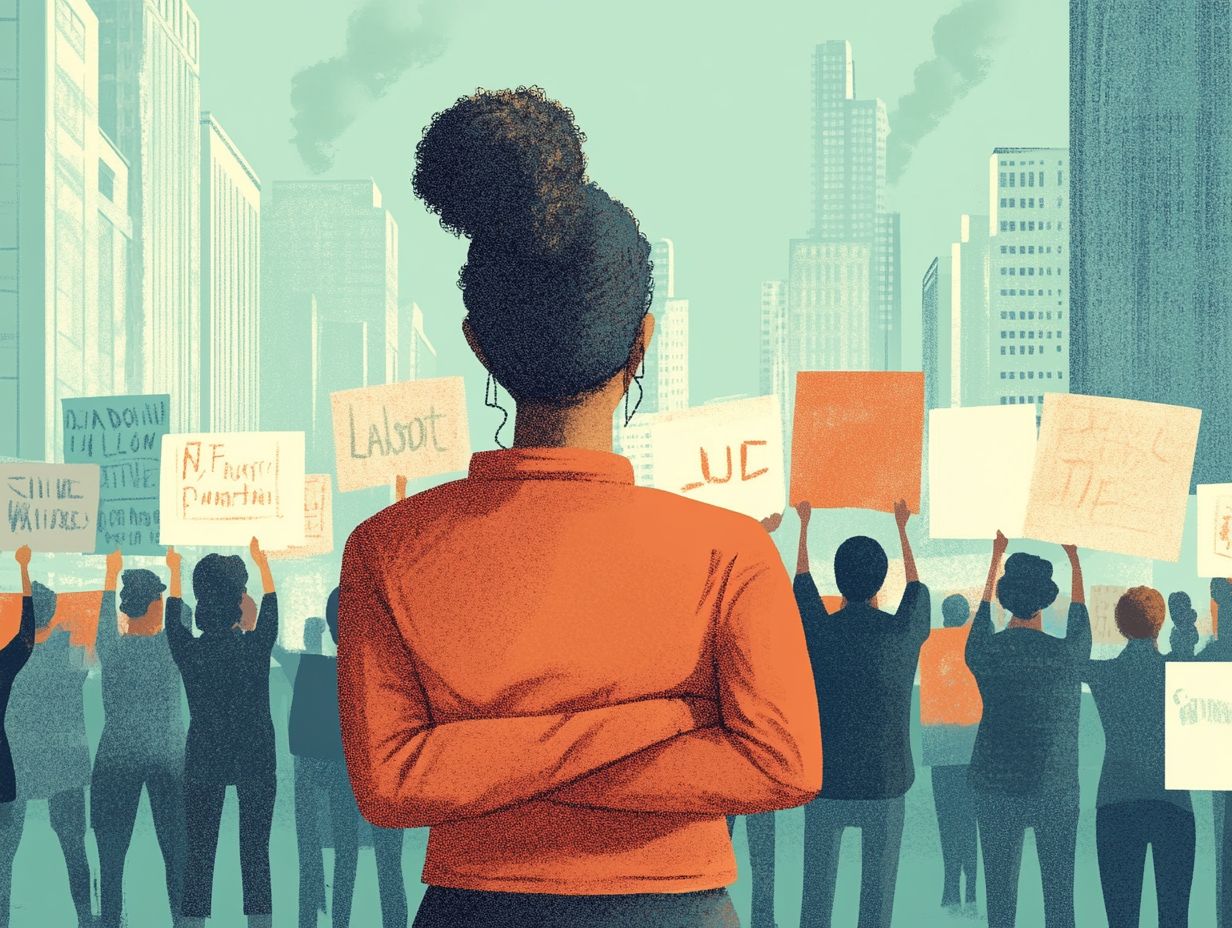
Engaging with support from your loved ones can significantly enhance your emotional health and resilience when facing rights violations. It offers you a sense of community and understanding.
When you encounter discrimination, the emotional weight can feel unbearable. It becomes essential to lean on your network of supportive friends, family, and community members. These connections provide a safe space for you to share your experiences and validate your feelings of injustice.
For example, organizing informal gatherings or group discussions allows you to express your emotions while receiving encouragement and insights from others who may have faced similar challenges.
Encouraging your loved ones to join educational workshops or community events can foster empathy and awareness, creating a collective environment that promotes healing and resilience.
Preventing Future Violations
To prevent future violations of your rights, embrace proactive measures such as self-advocacy, education, and raising awareness about your legal protections.
Taking these steps empowers you and helps create an informed community that protects your rights.
Self-Advocacy and Empowerment
Self-advocacy helps you and others understand and defend your rights against discrimination. By actively engaging in your own life, you can learn to articulate your needs, access available resources, and engage in meaningful conversations about your rights.
Techniques such as role-playing and assertiveness training can be immensely beneficial in building your confidence, enabling you to express your concerns without fear.
Community involvement is essential in this journey. When groups unite to support education and awareness initiatives, they cultivate an environment that fosters empowerment. This collective action not only reinforces the significance of civil rights but also creates a supportive space where you feel validated in your pursuit of self-advocacy.
Understanding Your Rights and Protections
Understanding your rights and protections is crucial as you navigate the intricate legal landscape surrounding civil liberties and discrimination complaints. Civil liberties refer to the basic rights and freedoms guaranteed to individuals.
Being aware of these legal frameworks empowers you to identify potential violations and take appropriate action.
Both federal and state laws are in place to protect individuals from various forms of discrimination based on race, gender, disability, and other categories. These laws ensure that everyone can participate equally and fairly in society.
When you understand your rights, you’re ready to stand up against injustices and seek the redress you deserve. Educating yourself on these vital topics can help prevent violations before they happen, fostering a culture of respect and accountability in your communities and workplaces.
Taking Preventative Measures
Taking preventative measures against rights violations means actively engaging in awareness campaigns and educating yourself about the legal protections available under the law.
Community involvement plays a vital role in amplifying these efforts. You can join local organizations that focus on human rights advocacy. Volunteering for workshops or seminars hosted by legal aid clinics enhances your understanding of civil liberties and current legislation.
By forming partnerships with community leaders and local advocacy groups, you create a supportive network that allows for the sharing of resources and information. Participating in public forums not only raises awareness but also encourages debate and discussion essential components for fostering a culture of respect and understanding around these critical issues.
Frequently Asked Questions
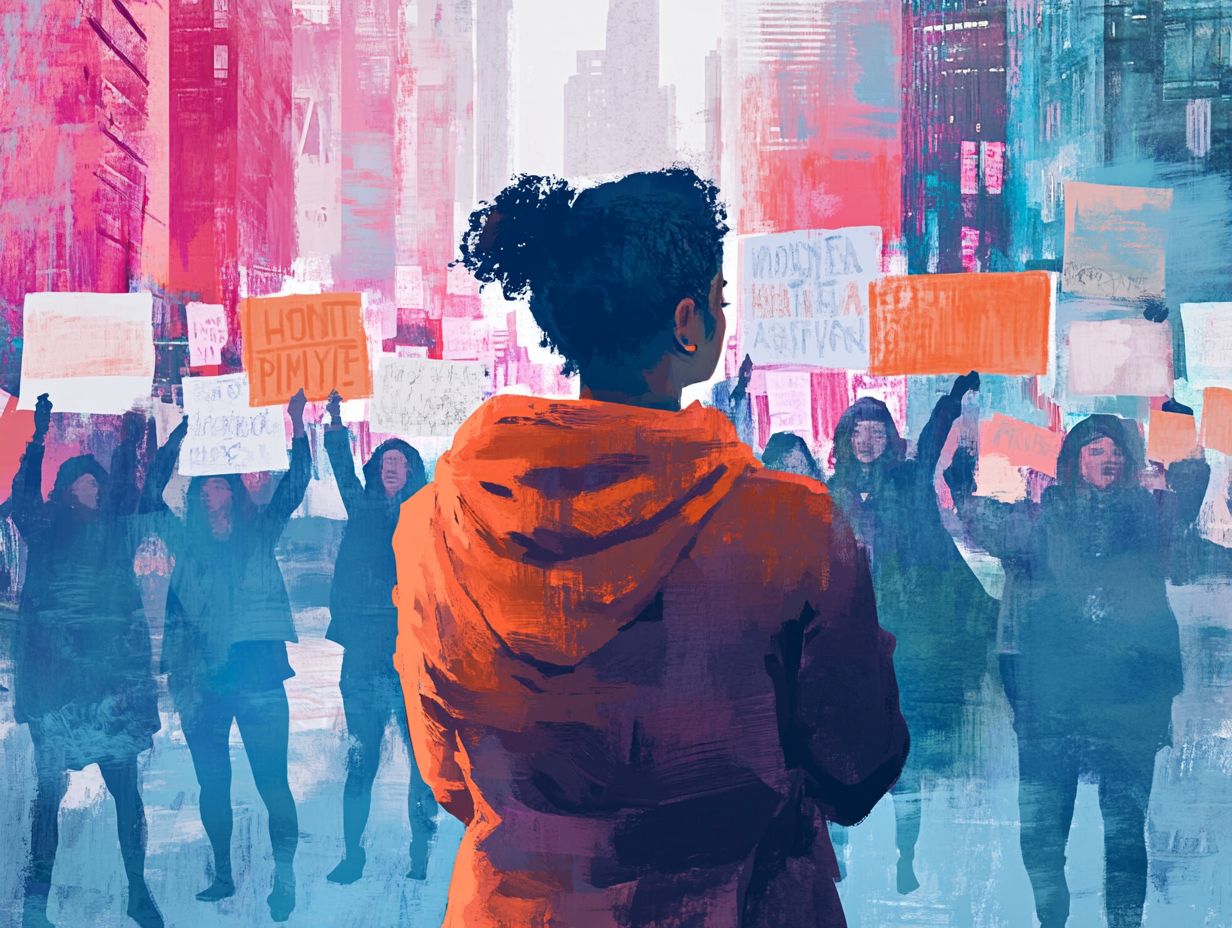
What to Do if You Feel Your Rights Are Being Violated?
If you feel that your rights are being violated, it’s important to take action to protect yourself. Here are some steps you can take, including knowing what to do if your rights are violated:
What are my rights?
Your rights are the fundamental principles granted to you as a member of society. These may include legal rights, such as the right to vote and the right to a fair trial, as well as human rights, such as the right to freedom of speech and the right to equal treatment.
How can I report a rights violation?
To report a rights violation, contact local authorities or legal aid organizations that specialize in civil rights issues. They can guide you through the process.
Where can I find legal help?
Many community organizations offer legal assistance. Check local resources or online platforms to find help in your area.
In conclusion, understanding and advocating for your rights are crucial steps in protecting yourself and your community. Take charge of your rights today!
Share this guide with friends and family to spread awareness!
Who Can Violate My Rights?
Your rights can be violated by anyone individuals, organizations, or even the government. Knowing your rights is crucial! Stand up for them!
What Are Some Examples of Rights Violations?
Rights violations can take many forms. These include discrimination, harassment, censorship, and abuse, whether physical or emotional.
For instance, you might be denied a job due to your race, bullied because of your sexual orientation, or face restrictions when speaking out about social or political issues.
How Can I Document the Violation of My Rights?
If your rights are being violated, document any proof you have. This can include written records, photos, videos, or statements from witnesses.
Having strong documentation can make a significant difference if you decide to take legal action.
What Are My Options for Taking Action?
You have several options to act. Speak with a lawyer or a human rights organization for support.
You can also file a complaint with the appropriate government agency or pursue legal action. Don t wait! Take action now to protect your rights!

